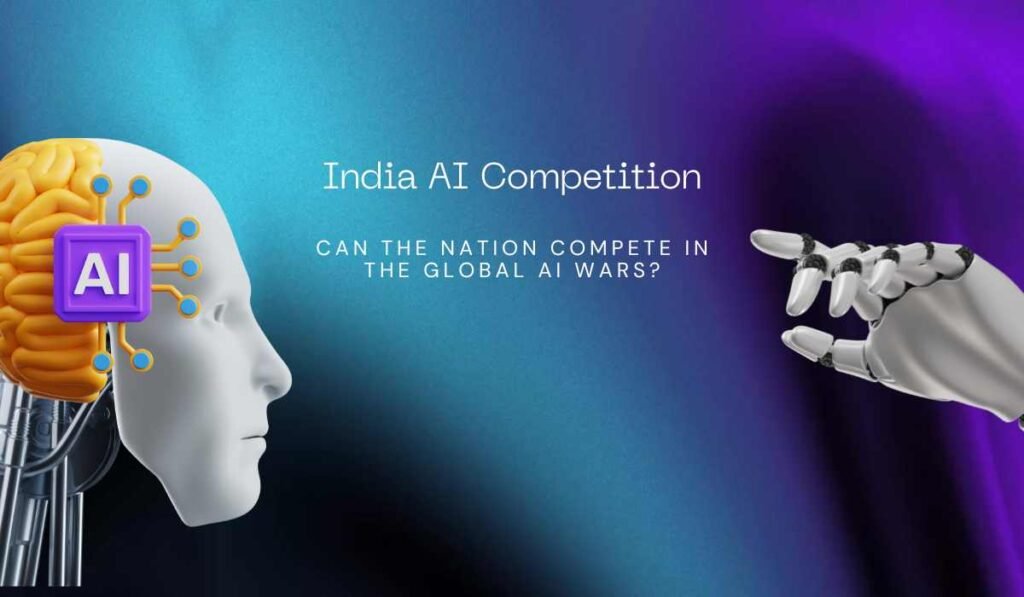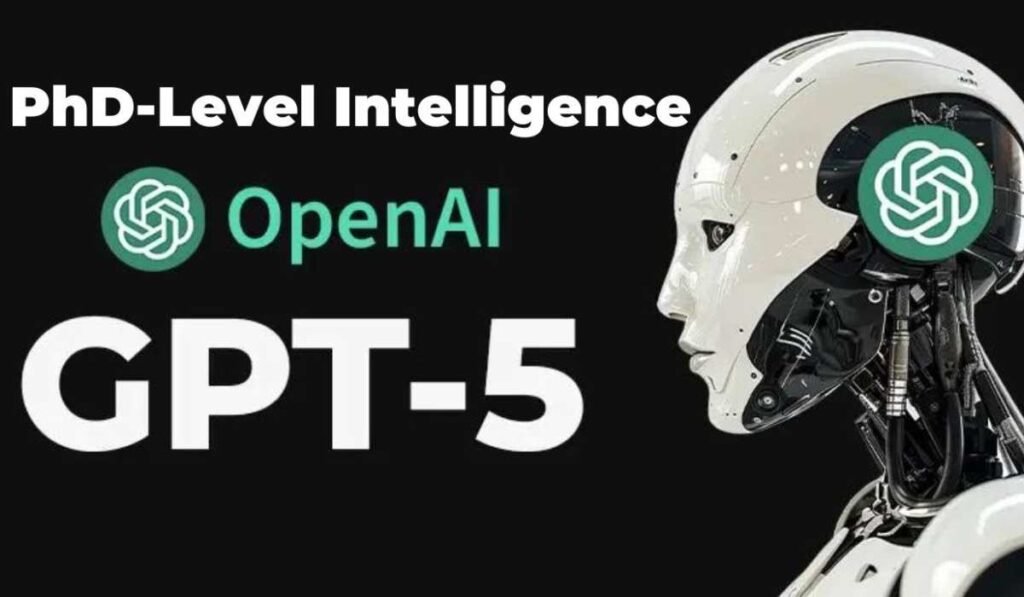The India AI competition landscape is rapidly evolving, but can the nation truly compete on the global stage? In June 2023, a provocative question sparked a heated debate about India AI competition prospects. Venture Capitalist Rajan Anandan asked OpenAI CEO Sam Altman, “Can India build an artificial intelligence tool like ChatGPT?” Altman’s response was blunt and controversial:
“We’re gonna tell you it’s totally hopeless to compete with us on training foundation models you shouldn’t try and it’s your job to like try anyway and I believe both of those things.”
This statement ignited discussions about India’s position in the AI competition and highlighted the challenges and opportunities facing the country. Let’s dive deep into this complex issue and explore whether India has what it takes to become a major player in the AI industry.
The Origins of Modern AI and India AI Competition Position
Before we assess India’s position in the AI competition, it’s crucial to understand how we got here. The current AI hype, powered by large language models (LLMs), started with a research paper from the University of Toronto. Authored by Jeffrey Hinton (the godfather of modern AI), Ilya Sutskever (of OpenAI fame), and Alex Krizhevsky, this paper introduced AlexNet, which supercharged an old AI algorithm using just two NVIDIA GPUs.
The key word here is research. How many Indian universities are known for cutting-edge, competition-winning, or patent-awarded commercially implementable research in artificial intelligence? This question is crucial when considering India AI competition status.
The Silicon Valley Talent Vacuum: A Challenge for India AI Competition
One of the biggest challenges facing India in the AI competition is what we might call the “Silicon Valley Talent Vacuum.” This phenomenon refers to the migration of top Indian talent to the United States, particularly to tech hubs like Silicon Valley. Let’s look at some eye-opening statistics:
- Over 70% of H1B visas (work permits for skilled foreigners) in the US go to software engineers
- In tech hubs like Seattle, almost 40% of foreign-born engineers are from India
- About 4 million people of Indian origin live in the US, forming one of the wealthiest and most educated minority groups
- Approximately 1 million Indians in the US are scientists and engineers
This brain drain isn’t limited to just engineers and researchers. Many top tech companies in the US are led by CEOs of Indian origin:
- Sundar Pichai at Google
- Satya Nadella at Microsoft
- Shantanu Narayan at Adobe
While this showcases the talent and capabilities of Indian professionals, it also highlights a significant challenge for India AI competition efforts – retaining its best and brightest minds.
The Funding Gap in India AI Competition
When it comes to AI development and competition, money talks. And in this aspect, India faces a significant disadvantage compared to countries like the United States. Let’s compare the investment figures:
| Country | AI Investment (2013-2023) | AI Startup Funding (2023) |
|---|---|---|
| USA | $335 billion | $16.2 billion |
| India | $9 billion | $113.4 million |
As we can see, India’s investment in AI is just a fraction of what the US has poured into the field. This massive funding gap makes it challenging for India to compete at the highest levels of AI development and competition.
Infrastructure and Computing Power: Another Hurdle in India AI Competition
Modern AI development isn’t just about brainpower; it’s also about computing power. In this arena, US tech giants dominate the market:
- Amazon Web Services
- Google Cloud
- Microsoft Azure
These companies not only provide the necessary computing infrastructure but also invest in AI startups, creating a closed loop that’s difficult for outsiders to break into. For instance:
- Amazon invested $4 billion in Anthropic, which then uses Amazon’s cloud services
- Google and Microsoft have similar arrangements with other AI companies
- Oracle became a cloud partner for Cohere after investing in the startup
This symbiotic relationship between cloud providers and AI startups creates a significant barrier for countries like India to compete on equal footing in the AI competition.
The NVIDIA Factor in the Global AI Competition
To further illustrate the scale of the challenge in the AI competition, consider NVIDIA, the company that makes powerful chips crucial for AI development. NVIDIA’s market cap is almost as much as India’s entire GDP. That’s right – one company with less than 30,000 employees is worth nearly as much as a country of 1.4 billion people.
India AI Startup Scene: A Glimmer of Hope in the AI Competition
Despite these challenges, India’s AI startup scene is buzzing with activity, reminiscent of the early days of SaaS in the country. Here are some notable Indian AI startups competing in the global AI arena:
- Krutrim: India’s first AI unicorn, valued at $1 billion
- Sarvam AI: Building language models for Indian languages
- MathCo: Creating AI solutions for global enterprises
These startups are taking a unique approach in the India AI competition – instead of trying to replicate Silicon Valley’s innovations, they’re focusing on solving uniquely Indian problems. For instance, creating AI models that understand India’s diverse languages.
Dev Kharey, a partner at Lightspeed Venture Partners India, puts it this way:
“You have to take a risk and say, this is where the world will be in a few years from now. That market doesn’t exist today, but I’m gonna bet it exists. I’m gonna build for that. That’s a bit of a newer DNA for India.”
The Project Indus Initiative: Boosting India AI Competition Efforts
In response to Sam Altman’s statement, Tech Mahindra’s CEO CP Gurnani took on the challenge. In just five months and with less than $5 million (pocket change by Silicon Valley standards), Tech Mahindra developed an Indian Large Language Model called Project Indus. This project isn’t just about proving Altman wrong; it’s about being “Atmanirbhar” or self-reliant and boosting India AI competition efforts.
Project Indus aims to create AI models for local languages with over 37 dialects, addressing a unique challenge in the Indian context. Tech Mahindra is collaborating with giants like Dell Technologies and Intel to make this vision a reality and strengthen India’s position in the AI competition.
India’s Unique Advantages in the AI Competition
While India faces significant challenges in the AI competition, it also has some unique advantages:
- Massive pool of engineering talent
- Huge domestic market to test new ideas
- Growing ecosystem of AI startups tackling unique challenges
- Frugal innovation mindset
As Gurnani puts it:
“The secret sauce for Indian companies is frugal plus innovation plus technology plus people leadership.”
This approach has allowed companies like IndiGo and Airtel to compete with global giants, and now they’re bringing that same spirit to the AI competition.
India’s Fighting Chance in the AI Competition
So, can India compete in the AI wars? The odds are certainly stacked against it in the global AI competition. The funding gap is massive, the brain drain is real, and the infrastructure lag is significant. However, India’s unique approach to AI development – focusing on solving real problems for its massive population – might just give it a fighting chance in the AI competition.
The AI race isn’t just about who has the most money or the biggest computers; it’s also about who can solve real problems for real people. In this aspect, India might have an edge in the AI competition. By focusing on challenges that Silicon Valley might overlook, such as developing AI models for diverse Indian languages, India could carve out its own niche in the global AI landscape.
Only time will tell if India’s efforts will be enough to make a real impact on the world stage of AI competition. But one thing is clear – India isn’t backing down from the challenge. As the country continues to invest in AI development and nurture its startup ecosystem, we might just see some surprising innovations emerging from this land of a billion possibilities, potentially reshaping the global AI competition landscape.
What do you think? Can India overcome its challenges and become a major player in the global AI competition? Share your thoughts in the comments below!
In June 2023, Venture Capitalist Rajan Anandan asked OpenAI CEO Sam Altman whether India could build an AI tool like ChatGPT, leading to a heated discussion about India's position in the global AI landscape.
Sam Altman suggested it was 'totally hopeless' for India to compete with the US on training foundation models, while also encouraging India to try anyway.
Research is crucial for AI development, and there is a concern regarding how many Indian universities are recognized for cutting-edge, competitive research in artificial intelligence.
The 'Silicon Valley Talent Vacuum' refers to the migration of top Indian talent to the US, particularly to tech hubs like Silicon Valley, which poses a challenge for India's AI competition efforts.
From 2013 to 2023, India invested $9 billion in AI, while the US invested $335 billion, highlighting a significant funding gap that limits India's ability to compete.
India struggles with access to the necessary computing power and infrastructure dominated by US tech giants, which hampers its ability to develop AI technologies at a competitive level.
Project Indus is an initiative by Tech Mahindra to develop an Indian Large Language Model focused on local languages, showcasing India's efforts to become self-reliant in AI despite limited resources.
India has a massive pool of engineering talent, a large domestic market, a growing ecosystem of AI startups, and a frugal innovation mindset, all of which can contribute to its competitiveness in AI.
By focusing on solving unique challenges, such as developing AI models for diverse Indian languages, India may be able to carve out a niche in the global AI landscape despite facing significant challenges.
While the odds are challenging, India's unique approach to AI development and its commitment to nurturing its startup ecosystem suggest that it could make a significant impact in the global AI competition in the future.





